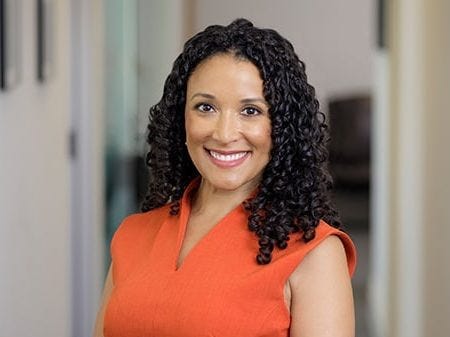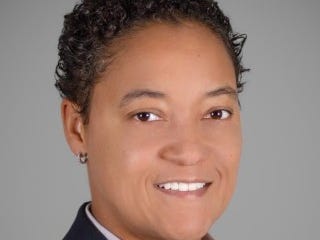
- Racial inequity in investing is a multi-faceted problem, says Angelique Brunner.
- We talked with business founders Brunner and Rachel Robasciotti on how they're directing change.
- Robasciotti is an asset manager and Brunner runs a real estate investment firm.
- This article is part of a series called "The Cost of Inequity," examining the hurdles that marginalized and disenfranchised groups face across a range of sectors.
Rachel Robasciotti understood from a young age the systemic issues that had led to her growing up poor in northern California.
Three men in Robasciotti's family were killed by police officers. She lived in a rural, racially segregated area, which at one point was in danger of being wiped out by a dam break.
"When I came into finance, I came in as a person who knew very directly the impacts of racial, gender, and economic climate justice issues," Robasciotti told Insider. "I could see how they all wove together, because I lived it."
When Robasciotti graduated from high school at 15 and attended the University of California at Berkeley to study political economy, she set out to make a difference in financial advising, helping people from disenfranchised communities improve their situations.
But eventually she realized her time would be better spent in asset management, where she thought she could create more significant change. She cofounded Robasciotti & Philipson in 2014 and later Adasina Social Capital, both of which invest with a focus on social justice.
"From the very beginning I thought what I would do was help individuals - like women, people of color, queer folks - which I did for many years as a wealth manager," she said. "What I realized, though, is you can only change things only one person at a time or one family at a time. What we really needed to do was be more in the space of asset management and directing the wealth.
"Everybody's, like, 'Yes, racial justice!,' and I'm, like, 'We could start with who owns and directs the wealth in this country, because that fuels everything,'" she added.
Representation is a broader problem in the investment space. This is problematic because it leads to things like groupthink in an industry, where a shared perspective leads to a reinforcement of prior biases, and can leave other groups' needs unmet.
Representation is also an issue in the greater business world. For example, only two Black women have ever been chairs of S&P 500 firms. This lack of diversity has arguably hurt performance, data shows. Bank of America found that firms with an above-average racial and ethnically diverse workforce outperform less diverse peers in return on equity by 8% in a year.
More than representation
But beyond representation, there are other ways that change can be directed. For one, there is asset allocation.
Robasciotti and her team at Adasina have created a list of firms that they exclude from their portfolios because, in their view, they engage in activities that propagate racial injustice.
For example, Adasina's exclusion list as of September 2020 features Sodexo and cites the company's provision of catering services to prisons in Australia and the UK. It also includes Boeing because of their involvements in making surveillance equipment.
"Sodexo only provides services where we can make a positive impact on prisoner's lives and will not work in countries with capital punishment," a spokesperson said, adding that the death penalty in many US states did not match its ethical principles. Boeing did not respond to Insider's request for comment.
This approach matters because if investors increasingly decline to allocate money to certain firms for these reasons, their share-price performance will suffer. Therefore, if companies and their executives wish not to endure poor stock performance or miss out on gains, they will correct behavior that isn't in line with what investors want.
Known under the umbrella term as environmental, social, and governance (ESG) investing, this style of allocating money is becoming more popular: Investor flows into ESG-focused exchange-traded funds jumped 700% last year.
Further, there are structural elements of the investing process that can change, like due diligence, Robasciotti said.
Many investors choose to give money to fund managers who meet criteria like having over $200 million in assets under management and a three-year track record. This puts a lot of minority fund managers at a disadvantage from the start and keeps money with those who are already the wealthiest and most powerful, Robasciotti said.
Inequity beyond equities
But inequity in investing isn't only an issue to be dealt with in and through equity markets. It rears its head in other areas, too, like real estate and business investment.
For example, banks are less likely to invest in entrepreneurs who are people of color, or in businesses in minority neighborhoods, according to Angelique Brunner, the founder and CEO of EB5 Capital, a real estate investment firm. And even if they do, it's often less that the entrepreneur would need.
In other words, people who want to invest in a business of their own to grow wealth often can't because they have less access to capital.
Some businesses have tried to address the problem. Marriott, for instance, started to provide credit enhancement - essentially supporting the underwriting of a deal - to increase the chances of a person of color accessing credit to start a hotel licensed under their name, Brunner said.

EB5 Capital
Brunner founded EB5 Capital to address this. The firm helps connect immigrant investors with projects that need funding in underserved areas, where US banks are less likely to provide backing.
But racial inequity, when it comes to investing and all its implications, is a broad and difficult issue to fix. Robasciotti says better representation in an industry alone isn't enough. Brunner says the behavior of numerous parties needs to change.
"This is a multifaceted problem, and it's going to be a multifaceted solution," Brunner said. "It's not on corporations alone, it's not on capital markets alone, it's not on municipalities alone.
"The history of how we got to now involved bad actors on every side of the equation. And so the history of how we get to where we want to be will involve intentionality from every actor in the equation."












